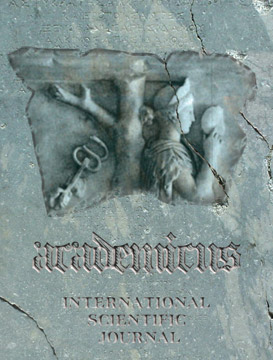Title:
The anti-competitive agreements in the prospective of the law on competition protection - An inside in the Albanian practices and legal framework
Author(s):
Abstract:
In Albania legislation on competition was developed only after the 90s and this is natural depending on the economic development and market model, which before the 90s had spaces of a free and competitive development. Competition is an economic phenomenon that refers to such a state of a free market economy, where companies compete independently in order to benefit as many buyers so as to meet the objectives to increase profits and expansion of markets. In this way free competition is both beneficial for business development and profitable for consumers themselves, who should benefit from the prices set based on the demand–offer ratio. Competition should be perceived as a necessary mechanism that promotes increase of welfare in general, by providing enterprises with greater opportunities for profit and therefore better quality for consumers, a major benefit in the range of choices lower prices. Encouraged by the existence of competition, enterprises as market players should be motivated to be always on the alert and perhaps in uncertainty in order to be as much active in the way they compete with their competitors by providing investments and aggressive strategies as a reply to their, but also potential rivals. In competitive markets, the companies are motivated to gain market power in order to strengthen their positions in the markets where they operate and thereby they have an impact in the fulfillment of the growing needs of the consumer, which brings increase of welfare. Nevertheless, quite often companies have such an attitude that they may cause limitation of competition, such as the agreements, whose object or consequence is price fixing, market shares or the establishment of a market structure where competitors join (in case of concentrations). Price fixing is a classic element to all cases of cartels. By means of such behavior competitors try to avoid price competition between them to the detriment of the consumer, by applying higher prices. This may happen at horizontal level, but also at vertical level. What do we perceive with prohibited agreements under Albanian law of competition? What are the forms of agreements that are prohibited and which are excluded? These are some of the questions that this article adresses.
Keywords:
agreement; competition; economic; consumers
Full Text PDF:
References:
View complete reference list, click
here
Digital Object Identifier DOI:
The article's content ©Academicus™ The anti-competitive agreements in the prospective of the law on competition protection - An inside in the Albanian practices and legal framework
by
Prof.As.Dr. Rezana Konomi
,
Prof.As.Dr. Zhaklina Peto
is licensed under a Creative Commons
Attribution-NonCommercial 4.0 International License.
Presented:
February 2015
Included for Publishing:
June 2015
Published:
July 2015,
Volume 6,
Issue 12
Academicus International Scientific Journal is an Open Access Journal. This means that all content is freely available without charge to the user or his/her institution. Users are allowed to read, download, print, search, or link to the full texts of the articles in this journal without asking prior permission from the publisher or the author. This is in accordance with the BOAI definition of open access. Users are obliged to cite the source (Academicus International Scientific Journal) and the author, according to the international citation standards.
To learn more about the OA Policy followed by Academicus ISJ, read Journal Regulations
Academicus
International Scientific Journal
pISSN 2079-3715
eISSN 2309-1088
Address:
Sheshi i Flamurit, Rruga Muze
Al-9401 Vlorë, Albania
Tel: +355 68 60 60 555
info@academicus.edu.al
https://academicus.edu.al



 Scholar
Scholar
 Crossref
Crossref
